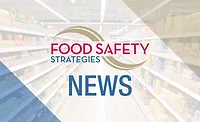Jensen Farms’ Fall Underscores Need for Supply Relation Oversight in Era of FSMA

The U.S. Food and Drug Administration (FDA) counsels that supply chain management is one key to compliance with the Food Safety Modernization Act (FSMA). Shortly after enactment of FSMA, FDA Deputy Commissioner Michael Taylor explained that food companies must be vigilant in managing their supply relationships because responsibility for FSMA compliance and safe food production and processing falls on each food company:
“The key, however, is that the new law explicitly places primary responsibility for food safety – prevention – on food producers and processors. Think of it as supply chain management written into law.”
Michael Taylor, FDA Deputy Commissioner for Food, Global Food Safety Conference, London, England, February 17, 2011
But when reminded to manage their supply relationships, many think only of the goods they receive or sell to others. That is, are the ingredients coming in and the improved or finished products going out safe? That inquiry is not sufficient. Preparation for and oversight of the supply of services is of equal import. The fall of Jensen Farms underscores that important lesson.
In 2011, Jensen Farms, then a cantaloupe processor and now bankrupt and out of business, sold cantaloupes that have been linked to 33 Listeria-related deaths and 147 illnesses nationwide. The Jensen Farms cleaning system was the cause. A 2010 audit expressed concern that the cleaning system might cause contamination because it recirculated the wash water, even though the water contained chlorine. As a result, before the 2011 growing season, Jensen Farms installed new processing equipment that used city water and brushes to wash the cantaloupes. The only chlorination was in the city water.
In a rare prosecution under the Food, Drug and Cosmetic Act, the U.S. government charged Jensen Farms owners Eric and Ryan Jensen each with six misdemeanor criminal violations. Although misdemeanors, those charges are no small issue. Each charge carries the possibility of a year in prison and a $250,000 penalty. Moreover, to win conviction, the government need not prove criminal intent or knowledge of wrongdoing. Rather, the government need only show that the adulterated food entered interstate commerce and that the individual defendants were responsible for the company that let it happen.
Recently, the Jensens opted to plead guilty; their sentencing, and any attendant penalty and jail time that they may face, has yet to happen. But, in the meantime, the Jensens have made clear their belief that they are not the only ones at fault for their personal downfall and the fourth-generation family business’ end.
On October 15, Jensen Farms sued Primus Group, the third-party auditor Jensen Farms engaged to audit their farming and processing operations. Among other causes of action, Jensen Farms alleges that Primus was negligent in its audit of the Jensen Farms packing facility, failing to adhere to industry standards and best practices even where no specific FDA requirement applied and failing to alert Jensen Farms of deficiencies that the auditor should have identified and that Jensen Farms could have addressed before any outbreak, among other audit deficiencies. The Jensens contend that they explained to the 2011 auditor Jensen Farms’ change to its cleansing process and that the 2011 auditor noted the changes in his report, but that the auditor acted improperly and in contravention of industry standards when he failed to observe conditions that should have caused the auditor alarm and to apprise Jensen Farms of the cleaning system shortcomings.
Primus Group has yet to respond to the Jensen Farms complaint as of the publication of this article. But regardless of its response or the ultimate outcome of that litigation, the fall of Jensen Farms highlights the need to properly plan for and oversee the contracting of food company services. Proper planning and management of a service-oriented supply relationship entails at least four considerations:
1. Thorough due diligence regarding, and preparation for, the relationship;
2. Thoughtful negotiation of the relationship;
3. Precise drafting of the supply agreement that governs the relationship; and
4. Vigilant management of the relationship and supply agreement.
Each phase involves considerations too many and specific to describe in detail here. Instead, the author highlights a few key considerations under each phase. (For a more detailed analysis of those concepts, see Ensuring Success of Food Company Outsourcing)
Thorough Due Diligence
Mismatched expectations make it easier for the relationship to fail and, critically, for a food company to go without valuable service and guidance it may require. A food company must determine its objectives for the relationship and the service it requires and then determine that the service provider has the expertise and resources to timely and efficiently provide the assistance needed. Due diligence must entail any essential criteria that may affect the services, such as FSMA requirements and other industry best practices, as well as the service provider’s ability and obligation to assess and meet those requirements.
Thoughtful Negotiation / Precise Drafting
A company should carefully consider, negotiate and contract for each aspect of the service relationship. For example, if the company or the supplier is subject to government regulation or industry standards, the service agreement should identify and detail those regulations and standards and how the supplier will satisfy those standards. The need to carefully negotiate and precisely draft the service agreement is particularly acute in the food industry where companies are especially susceptible to consumer perception. Even if a service provider was the only cause of a problem, consumers are unlikely to appreciate a distinction between the food company and its service provider. Or, as in the case of Jensen Farms, any blame pinned on the service provider may be too little too late to save the company and, critically, protect consumers.
Careful Management
A food company must closely manage the service relationship. A company should make sure that the service agreement provides the company with an appropriate level of oversight and the ability to ask questions of and communicate with key service provider personnel. To that end, particularly where food safety is concerned, it is critical that the company retain personnel with sufficient food safety knowledge and knowledge of the company’s operations to oversee the provision of services and, if needed, raise questions with the service.
The fate of Jensen Farms, and the harm to those impacted by its Listeria-ridden cantaloupes, offers an important lesson for food companies. Rote reliance on a service provider’s representation that it can provide the services the company seeks may not offer the company or its customers sufficient protection. Proper planning, careful contracting and ongoing oversight are critical to ensuring an effective service relationship. A failure in a critical service relationship may have a substantial, and potentially devastating, effect on a food company’s business and the consumers it feeds.
John T. Shapiro is partner and member of the Food Industry Team at Freeborn & Peters LLP (Chicago).
>
Looking for quick answers on food safety topics?
Try Ask FSM, our new smart AI search tool.
Ask FSM →








